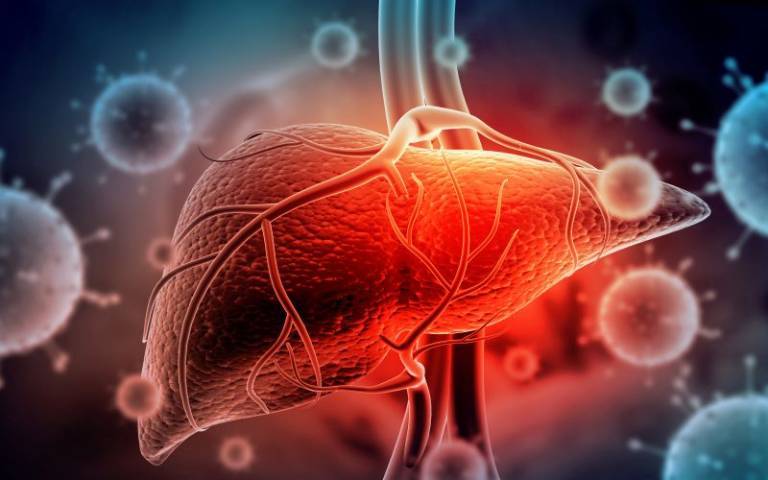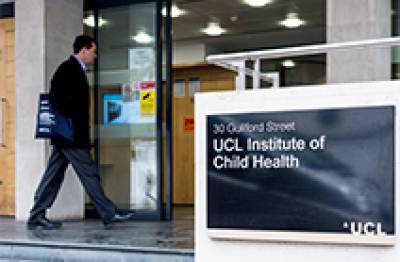Adeno-associated viruses linked with development of hepatitis
30 March 2023
The rise in unexplained hepatitis cases among children since 2022 has been linked to a common childhood virus, known as adeno-associated virus 2 (AAV2), by researchers at UCL and Great Ormond Street Hospital (GOSH).

The study is one of three independent research papers, published in Nature and led by UCL, GOSH, the University of Glasgow and the University of California, San Francisco, respectively, that show how AAV2 can be directly implicated in disease.
Since 2022, more than 1,000 cases of paediatric hepatitis (inflammation of the liver) with no known cause have been reported in 35 countries, including the UK and USA. In some cases, the hepatitis was so severe that a liver transplant was needed; meanwhile a smaller subset of cases was fatal.
Previously, health officials believed that a spike in adenovirus infections – which typically cause mild cold or flu-like illness – during spring 2022, may have been part of the explanation for the outbreak of hepatitis cases.
However, the three new studies show that typically ‘harmless’ AAV2, which cannot replicate without a ‘helper’ virus such as adenovirus or herpesvirus, was present in a majority of cases of unknown hepatitis.
The work at UCL and GOSH led by Professor Judith Breuer (UCL Great Ormond Street Institute of Child Health), found that high levels of AAV2 were present in 27 out of 28 (96.4%) cases of hepatitis, with significantly lower levels children with adenovirus infections, (six out of 100) even if immunocompromised (11 out of 32).
While the team also detected low levels of human adenovirus in liver tissue, they found evidence for human betaherpesvirus 6B (HHV-6B) co infection in the most severe cases that required liver transplantation. The appearance, gene and protein expression patterns in liver tissue confirmed that the hepatitis was caused by immune processes - with widespread activation of the patients’ immune systems evident.
Professor Breuer said: “Our data now strongly point to AAV2 as the cause of this unknown hepatitis.
“Co infection with adenovirus in most cases is likely to have promoted massive AAV2 replication while HHV-6B, which also aids AAV-2 replication, in liver tissue from 11/12 children who needed liver transplants, suggests a role in the most severe cases.”
The UCL findings were also reflected in the other two studies, where AAV2 was detected in 26 out of 30 (81%) cases in the study led by the University of Glasgow and 13 out of 14 (93%) cases in the USA.
In July last year, teams from England and Scotland announced early results to dispel fears that the global spike in hepatitis was directly related to Covid-19 infection.
While the spike in hepatitis cases has now diminished, Professor Breuer and her team are working with colleagues at UCL to explore whether the findings from this study will provide insights into the relationship between adeno-associated virus (AAV) gene therapy, used to treat genetic disorders and the occurrent of AAV gene therapy associated hepatitis.
Professor Breuer said: “While cases of the ‘mystery’ hepatitis in children have thankfully fallen away, we find ourselves now working with the gene therapy community.
“Hepatitis is a common complication of AAV gene therapy and we already have some indications that mechanisms underlying this may be similar to those found in the recent spike in cases of hepatitis with an unknown cause.”
Links
- Professor Judith Breuer’s academic profile
- UCL Great Ormond Street Institute of Child Health
- UCL Population Health Sciences
- Great Ormond Street Hospital for Children
- University of Glasgow
- University of California, San Francisco
Image
- Credit: Rasi Bhadramani on iStock
 Close
Close


